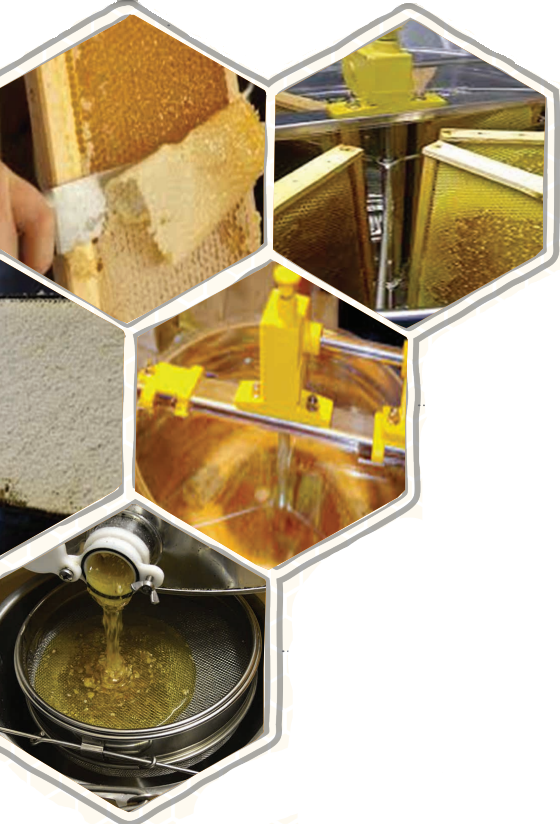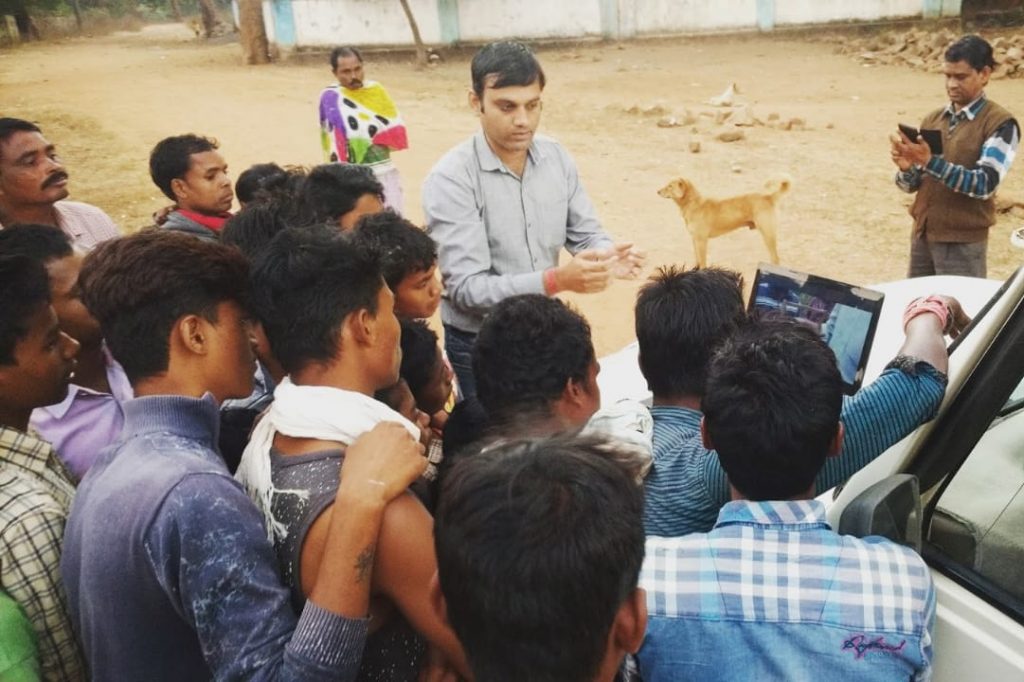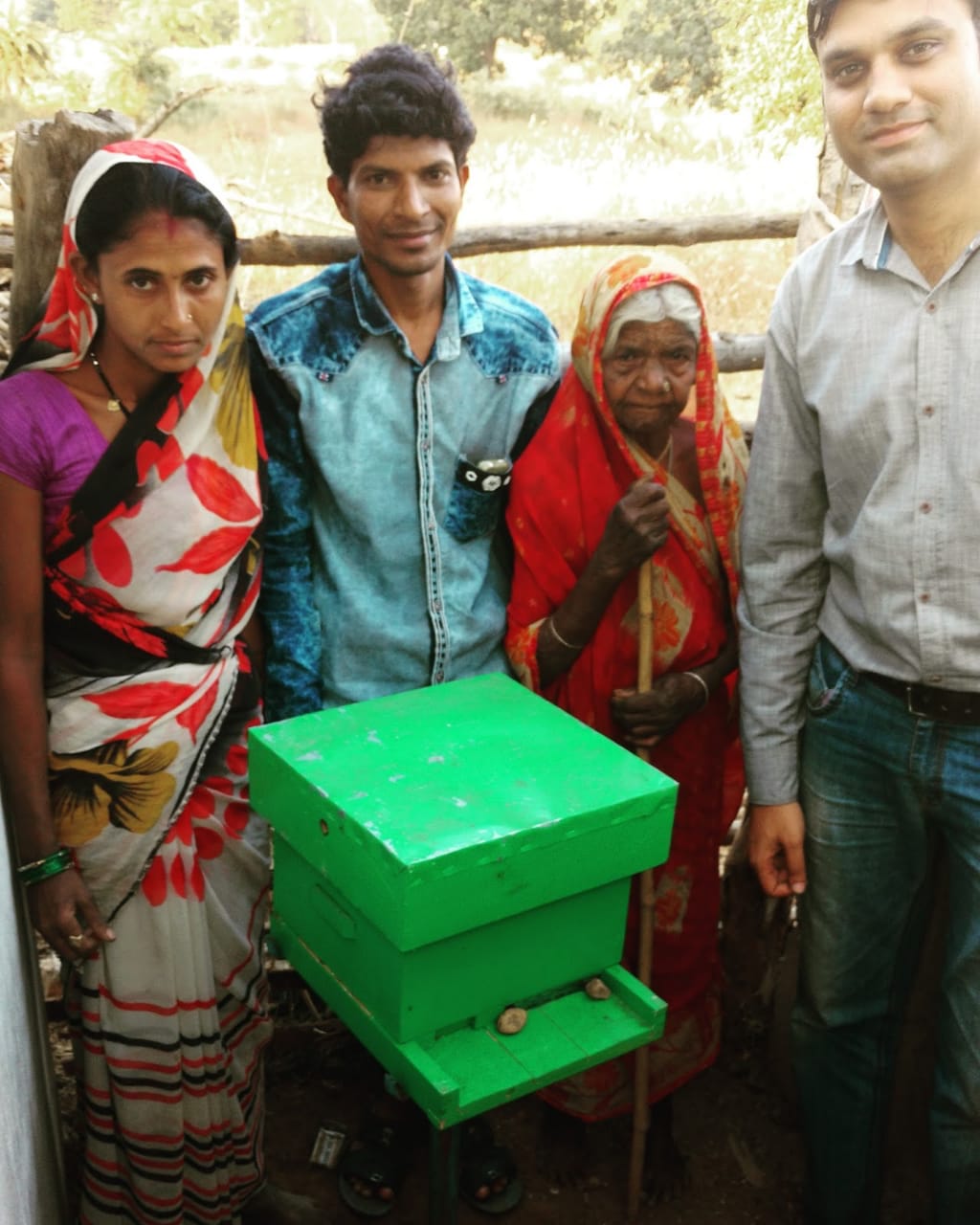

The youth unemployment rate in India is on the rise, and the pandemic further worsened the jobs crisis. In the April to June quarter of 2021, the youth unemployment rate stood at 25.5 per cent for the age group of 15 to 29 as per the Periodic Labour Force Survey. On the one hand, our youth dreams of jobs and employment, while on the other hand, due to low skills and lack of mentorship, gainful employment remains a pipe dream, increasing the gap between the haves and the have-nots. Skilling is thus an important component of the nation’s growth story and helps ensure no one is left behind in being gainfully employed. World Youth Skills Day is celebrated every year to mark the “strategic importance of equipping young people with skills for employment, decent work and entrepreneurship”.
With nearly 40 per cent of the Indian population aged 13 to 35 years (defined as youth in the National Youth Policy), such skilling programmes help empower those left out of the employment circle. The National Skill Development Corp India (NSDC) was set up as a one-of-its-kind Public Private Partnership to catalyse the skills landscape in India. Mentoring support is crucial for the success of programmes like Startup India that require support for training, finances and networking needed for the youth to start ventures on their own. Many such programmes are taken up under CSR activities by India Inc. too.
The storm of unicorns created post-pandemic catapulted India into an enterprising nation. In the Observer Research Foundation and the World Economic Forum’s joint study, “Young India at Work – A Survey of Youth Aspirations”, nearly 38 per cent of youth selected entrepreneurship as their preferred work mode.
However, if we look at the top (successful start-ups) and the bottom of entrepreneurial talent (food carts, etc), it is a story of lopsided growth. In a country where 12 million graduates are added every year, a huge opportunity exists between the two ends of the spectrum – between techpreneurs launching start-ups and the small businesses that give employment to the semi-literate. It is the MSME sector, the country’s largest employer, that contributes nearly 30 per cent to the country’s GDP, which holds a huge potential.
Through a beekeeper training programme, one can learn the skills required to set up a honey manufacturing unit. There is a need to create specific training programmes on the technical aspects of bee-keeping and how to market and create a demand for other products like beeswax, propolis, flower pollen, bee pollen, and royal jelly. Bee farming or apiculture requires adequate moisture to produce a good, golden haul.
Rising Appeal of Apiculture
According to IBEF, the food processing industry – one of the largest industries in India – accounts for 32 per cent of the country’s total food market – is poised for huge growth. Food, agriculture and allied activities remain immune to market changes. Food was the only segment not dented during the lockdowns; even food deliveries made megabucks in contactless times. Moreover, with interest in nutrition peaking due to the pandemic, people are now more conscious of healthy food and sustainable living. For instance, during the pandemic, honey witnessed a positive demand; with the Ministry of AYUSH recommending it as a home remedy in preventive care and dealing with cough-related symptoms among COVID patients. The Khadi and Village Industries Commission (KVIC) recommend beekeeping as a sustainable, environment-friendly activity since it provides nutritional, economic, and ecological balance.
 Bees are among the best-known pollinators and need a boost to save our forests and agricultural wealth. Honey bees make multiple visits to the same flower until they get all the nectar and pollen out of it. Pollen attached to bees passes between plants, pollinating them. Thanks to bees, we enjoy a range of food, from mangoes to apples. Many farmers rely on bee colonies to pollinate their plants.
Bees are among the best-known pollinators and need a boost to save our forests and agricultural wealth. Honey bees make multiple visits to the same flower until they get all the nectar and pollen out of it. Pollen attached to bees passes between plants, pollinating them. Thanks to bees, we enjoy a range of food, from mangoes to apples. Many farmers rely on bee colonies to pollinate their plants.
Skill development or mentorship programmes for beekeeping include business management practices, niche skills like bee handling, nutrition, bee movement, observation and maintenance of machinery, and so on. To set up a home business, one would need regulatory compliances like registration, trade licence, FSSAI licence, BIS certification, and an import-export code, if there are plans to export.
 The honey produced at bee farms is exported to the USA, UK, France, Italy, Spain and Japan. In 2020, India exported $87.2 million of honey, becoming the ninth-largest exporter of honey in the world. The honey market peaked in 2020, with a total valuation of Rs 17.29 billion. Facing strong tailwinds due to its huge therapeutic properties, the market is expected to reach Rs 38.3 billion by 2027, exhibiting a CAGR of 10.31 per cent during 2022-2027, according to an IMARC study. Thus, bee farming is a highly lucrative venture, sustaining economies and our plant wealth.
The honey produced at bee farms is exported to the USA, UK, France, Italy, Spain and Japan. In 2020, India exported $87.2 million of honey, becoming the ninth-largest exporter of honey in the world. The honey market peaked in 2020, with a total valuation of Rs 17.29 billion. Facing strong tailwinds due to its huge therapeutic properties, the market is expected to reach Rs 38.3 billion by 2027, exhibiting a CAGR of 10.31 per cent during 2022-2027, according to an IMARC study. Thus, bee farming is a highly lucrative venture, sustaining economies and our plant wealth.
Apart from its therapeutic use for cough and allergies, honey is a natural humectant, a gentle exfoliant, and has antimicrobial, antifungal and antibacterial properties. Other products of the bee hives are pollen, bee venom, propolis, royal jelly and honeycomb. Each product from the honey bee is immensely useful, having curative, palliative and preventive properties.
Training Programmes
 Through a beekeeper training programme, one can learn the skills required to set up a honey manufacturing unit. There is a need to create specific training programmes on the technical aspects of bee-keeping and how to market and create a demand for other products like beeswax, propolis, flower pollen, bee pollen, and royal jelly. Bee farming or apiculture requires adequate moisture to produce a good, golden haul.
Through a beekeeper training programme, one can learn the skills required to set up a honey manufacturing unit. There is a need to create specific training programmes on the technical aspects of bee-keeping and how to market and create a demand for other products like beeswax, propolis, flower pollen, bee pollen, and royal jelly. Bee farming or apiculture requires adequate moisture to produce a good, golden haul.



 Skill development or mentorship programmes for beekeeping include business management practices, niche skills like bee handling, nutrition, bee movement, observation and maintenance of machinery, and so on. To set up a home business, one would need regulatory compliances like registration, trade licence, FSSAI licence, BIS certification, and an import-export code, if there are plans to export.
Skill development or mentorship programmes for beekeeping include business management practices, niche skills like bee handling, nutrition, bee movement, observation and maintenance of machinery, and so on. To set up a home business, one would need regulatory compliances like registration, trade licence, FSSAI licence, BIS certification, and an import-export code, if there are plans to export.
 Bee farming is usually carried out in open farm areas, especially near a garden or the rooftop, and close to the source of nectar for the bees. Some people also like to develop floriculture alongside beekeeping. Bee farmers need plenty of water, sunny and shaded areas, a lab testing the quality of the honey, and machinery like bee venom collectors, draining trays, heating tanks, honey extractors, and storage tanks. The manufacturing process requires opening the hive frame, extracting honey, filtering, packaging and then marketing/sales and promotion.
Bee farming is usually carried out in open farm areas, especially near a garden or the rooftop, and close to the source of nectar for the bees. Some people also like to develop floriculture alongside beekeeping. Bee farmers need plenty of water, sunny and shaded areas, a lab testing the quality of the honey, and machinery like bee venom collectors, draining trays, heating tanks, honey extractors, and storage tanks. The manufacturing process requires opening the hive frame, extracting honey, filtering, packaging and then marketing/sales and promotion.
Among farming communities, scientific beekeeping can yield an additional income and growth of 20-80 per cent, depending on the crop and season. Krishi Vigyan Kendras, too, undertake training programmes for beekeeping to provide women, rural unemployed youth and forest communities with employment. In one of his Mann Ki Baat programmes, Prime Minister Modi lauded some bee-keepers who started apiculture from scratch and are now running successful businesses. He spoke about the role of beekeeping in the economy and its help to double farmers’ incomes. He exhorted the youth to take this up as a profession and take advantage of the various government initiatives where skilling activities in apiculture are needed to uplift the vulnerable sections of the population.
Apoorva – The Bee Man of India
There are many success stories of Indian beekeepers, among agriculture communities, marginalised sections, forest dwellers, etc., who have found it worthwhile to harvest bees.
 Apoorva BV – the Bee Man of India – has carved a successful career in the beekeeping profession. The mechanical engineer who hails from Chitradurga was fascinated by the meticulous activities of honey bees and their role in conservation so he decided to become a professional beekeeper 13 years ago. His company, Honeyday Bee Farms’ annual turnover is over Rs 2 Crore. Through his charitable trust, The Hive, he conducts workshops and training sessions and supports bee farmers in selling bee products. Apoorva also works towards sensitising urban folks about rock bees that nest in balconies of high-rise apartments, creating awareness against violent methods of bee-hive removal.
Apoorva BV – the Bee Man of India – has carved a successful career in the beekeeping profession. The mechanical engineer who hails from Chitradurga was fascinated by the meticulous activities of honey bees and their role in conservation so he decided to become a professional beekeeper 13 years ago. His company, Honeyday Bee Farms’ annual turnover is over Rs 2 Crore. Through his charitable trust, The Hive, he conducts workshops and training sessions and supports bee farmers in selling bee products. Apoorva also works towards sensitising urban folks about rock bees that nest in balconies of high-rise apartments, creating awareness against violent methods of bee-hive removal.



Honey has given the sweet taste of success to many marginalised communities. Many Santhal tribal women in South Bihar, for example, have transformed their lives, and during the pandemic, formed the Banka Madhu Farmers Producer Organisation to supply seven tonnes of honey to various markets in the country. Such bee farmers thus improve their food and economic security.
Sustainable Livelihood
 Bees are the world’s best and largest source of pollination; beekeeping thus provides sustainable livelihoods during the off-season for agricultural communities and growth in alternate methods to boost incomes. To provide a booster shot to Sweet Revolution, which aims to increase honey production, the Government of India launched the National Beekeeping and Honey Mission. Under this, bee-keepers are given subsidies, training, equipment, etc., to skill themselves and get a head start to becoming active bee-keepers. Among
Bees are the world’s best and largest source of pollination; beekeeping thus provides sustainable livelihoods during the off-season for agricultural communities and growth in alternate methods to boost incomes. To provide a booster shot to Sweet Revolution, which aims to increase honey production, the Government of India launched the National Beekeeping and Honey Mission. Under this, bee-keepers are given subsidies, training, equipment, etc., to skill themselves and get a head start to becoming active bee-keepers. Among  farming communities, scientific beekeeping can yield an additional income and growth of 20-80 per cent, depending on the crop and season. Krishi Vigyan Kendras, too, undertake training programmes for beekeeping to provide women, rural unemployed youth and forest communities with employment. In one of his Mann Ki Baat programmes, Prime Minister Modi lauded
farming communities, scientific beekeeping can yield an additional income and growth of 20-80 per cent, depending on the crop and season. Krishi Vigyan Kendras, too, undertake training programmes for beekeeping to provide women, rural unemployed youth and forest communities with employment. In one of his Mann Ki Baat programmes, Prime Minister Modi lauded  some bee-keepers who started apiculture from scratch and are now running successful businesses. He spoke about the role of beekeeping in the economy and its help to double farmers’ incomes. He exhorted the youth to take this up as a profession and take advantage of the various government initiatives where skilling activities in apiculture are needed to uplift the vulnerable sections of the population.
some bee-keepers who started apiculture from scratch and are now running successful businesses. He spoke about the role of beekeeping in the economy and its help to double farmers’ incomes. He exhorted the youth to take this up as a profession and take advantage of the various government initiatives where skilling activities in apiculture are needed to uplift the vulnerable sections of the population.
In India, the Skill India Programme, launched by the Government in 2015, aims to train over 40 crore Indians by the end of this year. The Pradhan Mantri Kaushal Vikas Yojana (PMKVY) is the Government’s flagship skill development scheme. Rural youth who are 18 years and above, with a minimum qualification of Class V, can take skilling activities under the Skill Development of Rural Youth scheme. Many other programmes focus on Skilling India like the Rozgar Melas, Capacity Building Scheme, Udaan, India International Skill Centres (IISCs), and so on. Similarly, the Mentoring India Programme started in 2017, provides training for SMEs. The Ministry of Skill Development and Entrepreneurship which coordinates Skill Development efforts across the country are planning to create 5000 Skill Hubs across the education and skill ecosystem to mainstream vocational education.

